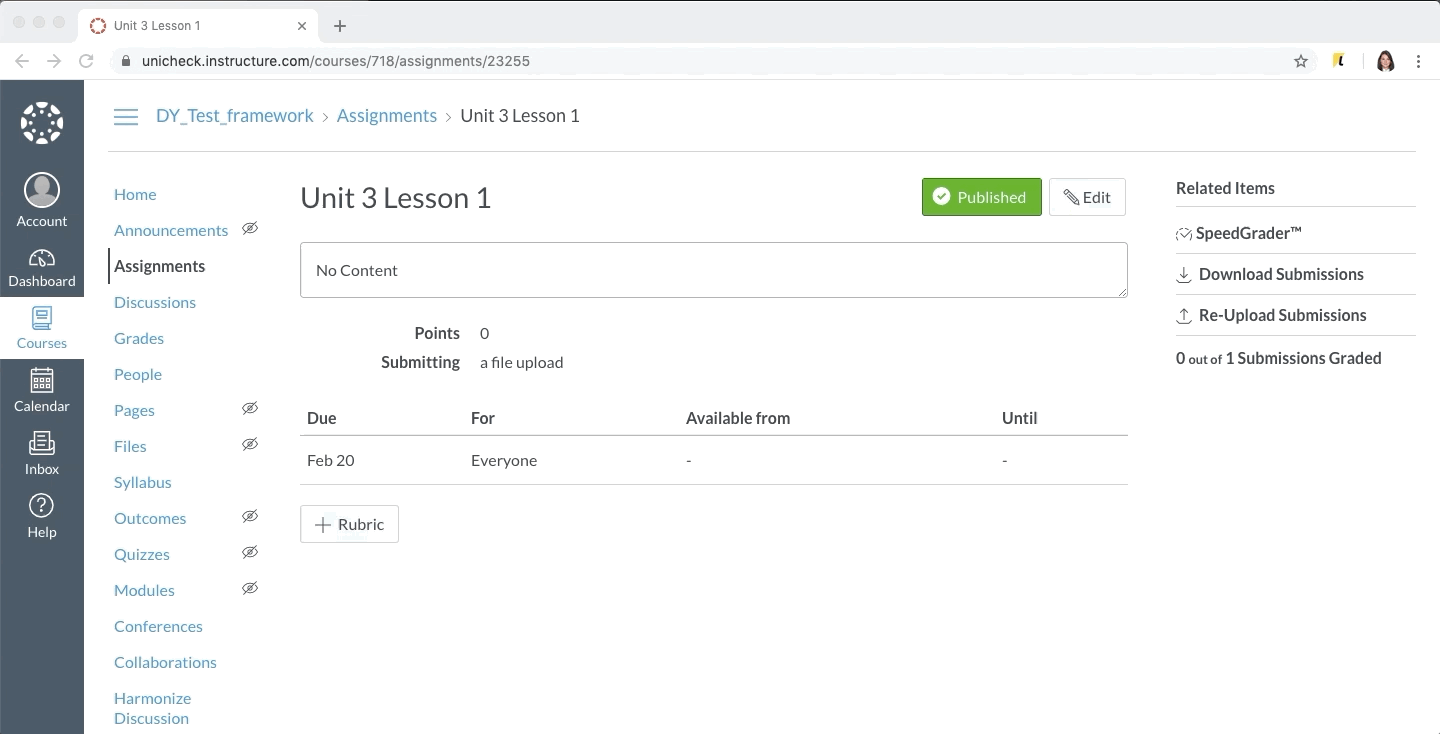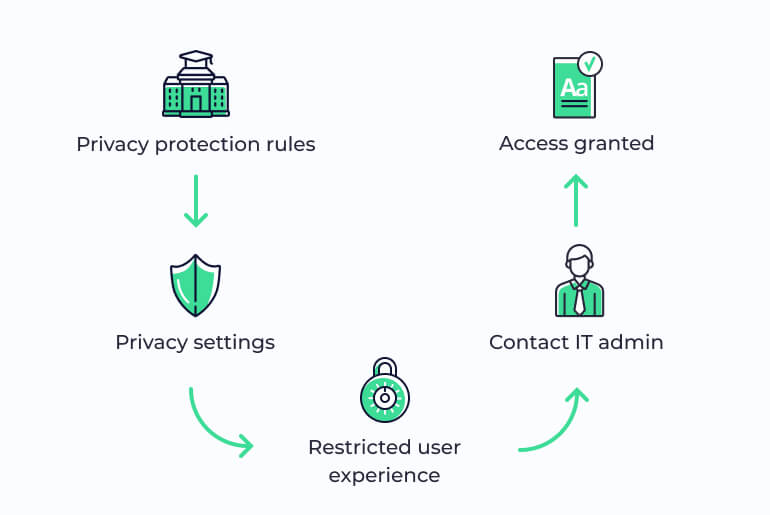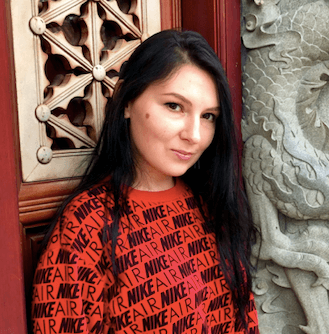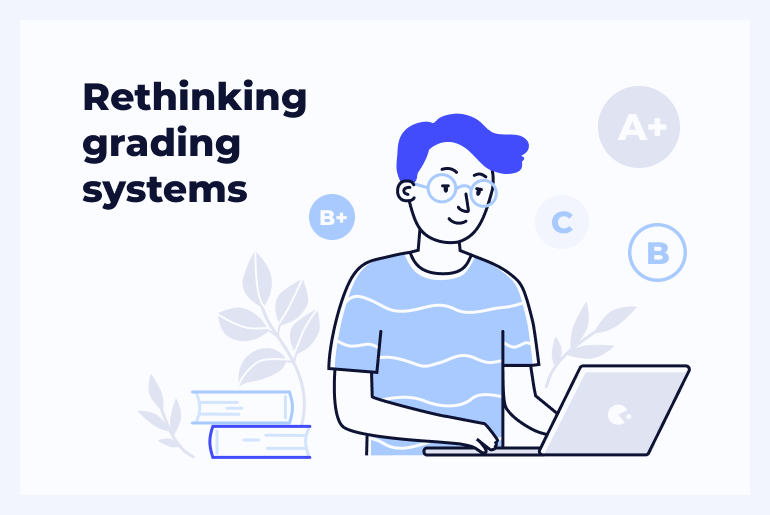Interestingly enough, we’ve been gathering student records for over 200 years now in the United States schools. This evolution has been impressive to observe, given that it started as a practice to keep general records and attendance for each student.
THE Problem With Digital Education
We get it–questions on student personal data protection have grown really tough. Being such a vague asset, ethical utilization of data has plenty of implications due to several reasons:
- No resources for data privacy strategy
- No obligatory data ethics training
- Not enough technical skills
- No devoted data privacy experts
These peculiarities have led to an inconsistency in policies implemented across educational institutions, which can cause serious situations of conflict. Only imagine how disclosed medical and mental health records or ethnic background information of students leads to discrimination and more.
When institutions use race, ethnicity, age, gender, or socioeconomic status to target students for enrolment or intervention, they can intentionally, or not, reinforce inequality.
How Academia Tries To Regulate
Apart from establishing data privacy infrastructures across educational institutions, the world of academia initiates numerous institution- and nation-wide regulations. FERPA, COPPA, and PPRA are some examples of the laws intended to protect scholars’ and employees’ personally identifiable information from misuse. There’s even an entire data protection laws map that showcases the austerity of regulations in every country, compares two countries’ legislation, and provides the details of every aspect of data protection.
If applied correctly, each of these privacy protection acts is essentially a broad set of rules that guarantees complete student data privacy. The only challenge is that regulations and acts aren’t enough to make universities’ databases safe and private. Therefore, the responsibility lies with the individual instructors, IT admins, and other educational personnel to translate those directives into the sound frameworks for personal data privacy.
How Technology Providers Can Help
To minimize and finally get to the point of avoiding data privacy controversies, universities should lean on their software vendors, which already own extensive technology expertise and can help them build comprehensive privacy protection ecosystems. Why software vendors? Simply because every time you adopt and agree to the terms and conditions of any software solution, you give them a permit to manage all sorts of personally identifiable information of your institution. So, they deal with your data all the time, and they are situated to handle it properly. Your software partners can and should properly interpret and embed all necessary data privacy rules into their algorithms to comply with your state and institutional legislation. Therefore, choose vendors that store and process your data ethically, and make sure they conform with your student records privacy norms.
How Protecting Your Data Impacts Your User Experience
Here, at Unicheck, we have gotten inquiries about restricting access to the paper content that appeared on the matches list of the Unicheck report.
 Contact your in-house IT admin to get access to a file
Contact your in-house IT admin to get access to a file
In this case, the text is considered personally identifiable information, and, to comply with the data protection laws mentioned above, this data is hidden by the default privacy settings. Consequently, students aren’t allowed to view the matching papers written by their peers, and educators may not be allowed to view the matching papers written by students enrolled in other courses. Nevertheless, you will be notified to contact your internal IT administrator to be granted access to a file you need for a proper investigation of the case. This quick guide will help.
 The scheme of getting access to a restricted file
The scheme of getting access to a restricted file
Why Privacy Settings Are Important
Many more pitfalls remain on this slippery slope of personal data protection in education. According to FIPPA, for instance, a Canadian professor who uses Facebook or Google Drive in a class (services that store data outside of Canada) technically performs illegal actions, even though every single student uses these tools privately.
That’s why it’s worth carefully vetting your service providers on how they manage all personally identifiable information that your institution shares with them. The most favorable scenario is when they neither abuse that info to their own benefit nor do they break the privacy laws of your university, state, or country. All other, dubious, options should be swept away for your own good and the overall data privacy of the entire institution or district.
Protecting personal data is our #1 priority. Yet, we still want to streamline the evaluation process for educators. Privacy settings fulfill both goals: student records are protected at all times while admins can always configure what’s visible.
Ivan Klymenko, Product Marketing Manager at Unicheck
If you want to learn more about how Unicheck complies with your institution’s and country’s data protection legislation, contact us here, and we’ll happily get back to you with all the details.
Content Creator at Unicheck
Interested in all things EdTech, Kate digs deep into the dilemmas of contemporary education to deliver a comprehensive picture of how the worlds of tech and academia intersect.





